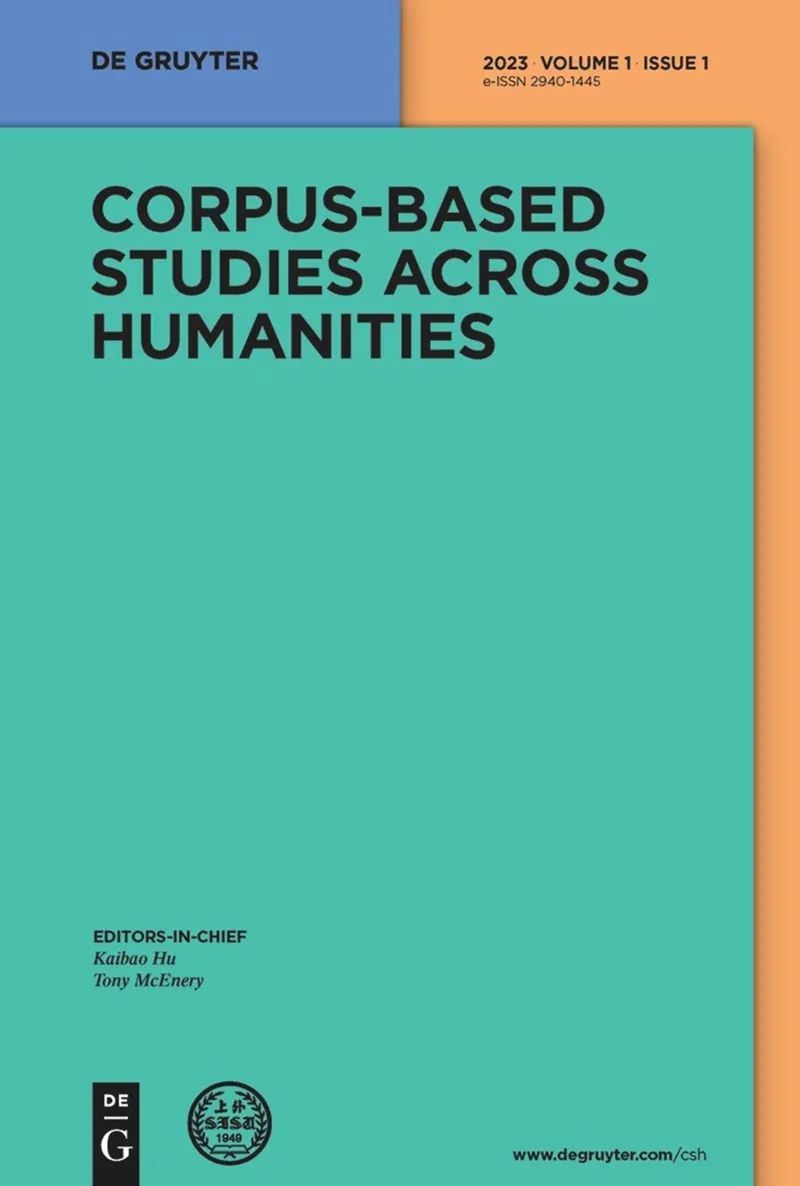Call for Papers
Corpus-based Studies across Humanities

The study of corpora has largely been considered as a sub-field of linguistics, but growing interest and considerable investment in corpora have encouraged development of corpora of diverse genres, which can be used not only for linguistic analysis but also for machine learning and human behaviour analysis. More recent development in artificial intelligence and machine translation has further expanded the remit of the application of corpora and enabled conspicuous adoption of a corpus-based methodology in a wide range of disciplines within Humanities, not limited to linguistics, to the extent that we are witnessing a growing number of multimodal corpora and non-linguistically oriented corpus-based studies. Nevertheless, most academic journals, if not all, that are dedicated to corpus-based research are restricted to linguistically oriented research, ignoring such a changing pattern in corpus research. Acknowledging such a gap, this journal aims to provide a platform for researchers in the Humanities to have a dialogue about different and innovative approaches to the use of corpora, and to update them with the most recent, cutting-edge corpus research. To this end, we hope this journal encourages more interdisciplinary collaboration for corpus research within the Humanities.
Corpus-based Studies across Humanities (CSH) invites contributions that apply corpus/corpora as a tool to topics in various areas across humanities and social sciences.
Suggested topics include, but are not limited to:
•Corpora and Language Studies
•Corpus linguistics
•Corpus-based Translation/Interpreting Studies
•Corpora and Literary Studies
•Corpora and Education
•Corpora and Medical Humanities
•Corpora and Communication
•Corpora and Rhetoric Studies (including Visual Rhetoric Studies)
•Corpora and Fine Arts
•Corpora and History
•Corpora and Film Studies
•Corpora and Legal Studies
•Corpora and Regional Studies
Homepage
https://www.degruyter.com/journal/key/csh/html#overview
Submission
https://mc.manuscriptcentral.com/csh
About the Journal
Corpus-based Studies across Humanities is a peer-reviewed international journal that publishes original and innovative, theoretical and applied/empirical corpus-based research in the Humanities. Recognising the increasing use of corpora across the Humanities, it aims to offer an interdisciplinary, transnational research forum for scholars from a wide range of sub-fields in the Humanities who carry out critical and original corpus-based research with highest scholarly standards in any area of the Humanities, encompassing areas such as linguistics, translation studies, the digital humanities, the medical humanities, film studies, philosophy, history, literature, law, art, and archaeology. It also welcomes contributions on the types of softwares for the development of corpora that support studies in the Humanities (more from a computational perspective). The language of the journal is English. The Review section is to introduce and critically discuss the most important recent publications on corpus-based approaches as well as software development.
Editorial
Editors in Chief
Kaibao Hu
Institute of Corpus Studies and Applications
Shanghai International Studies University, China
Tony McEnery
English Language and Linguistics,
Lancaster University, UK
Associate Editors
Lei Lei
Institute of Corpus Studies and Applications
Shanghai International Studies University, China
Kyung Hye Kim
Institute of Corpus Studies and Applications
Shanghai International Studies University, China
Book Reviews Editor
Muhammad Afzaal
Institute of Corpus Studies and Applications
Shanghai International Studies University, China
Advisory board
Clyde Ancarno (King’s college London, UK)
Mona Baker (University of Oslo, Norway)
Katherine Bode (Australian National University, Australia)
Lynn Bowker (University of Ottawa, Canada)
Eivind Engebretsen (University of Oslo, Norway)
Hong Huaqing (Shanghai International Studies University, China)
Rita Lucarelli (USA)
Saturino Luz (University of Edinburgh, UK)
Emmanuel Ngué Um (University of Yaoundé 1, Cameroon)
Binhua Wang (University of Leeds, UK)


 Back
Back

 Office Hour: 9:00-17:00
Office Hour: 9:00-17:00 Office: +86-21-67705180
Office: +86-21-67705180 Email: 2020215@shisu.edu.cn
Email: 2020215@shisu.edu.cn







